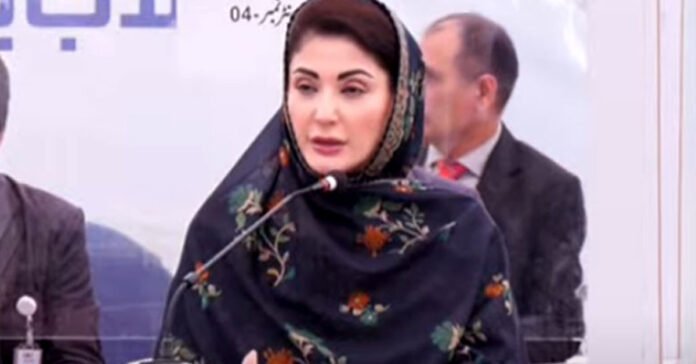The Punjab government on Monday officially launched a Rs100 billion Flood Rehabilitation Program.
Punjab Chief Minister Maryam Nawaz distributed Flood Cards among 500 affectees under the Program at Dipalpur in District Okara. She also addressed the cards distribution ceremony and met affected families and individual.
Maryam reiterated that Punjab had arranged funds from its own resources, asserting that she would not seek assistance from anyone.
River floods in Punjab during August and September killed over 300 people and devastated crops across thousands of acres. The floods also damaged homes, properties, and infrastructure on a large scale in several districts.
The PPP, which governs Sindh, has called for distributing aid among flood affectees through the Benazir Income Support Programme (BISP).
However, Punjab Chief Minister Maryam Nawaz rejected the proposal, announcing that the province would develop its own mechanism. The Punjab government then said that it would issue relief cards for flood victims.
The provincial government completed 70 per cent of the survey to assess the flood losses. Maryam declared the survey as the biggest in history of Punjab and the most transparent. She said Punjab financed all the resources for the survey.
Following the assessment, she on Monday began the rehabilitation campaign. The provincial government would distribute cheques to the people in 15 flood-affected districts of Punjab. These districts are: Narowal, Gujranwala, Kasur, Nankana Sahib, Okara, Sahiwal, Jhang. Sargodha, Toba Tek Singh, Vehari, Multan, Bahawalpur, Muzaffargarh, Lodhran and Bahawalnagar.
Why Without BISP:
While BISP is widely regarded as a PPP initiative, critics have long alleged instances of corruption within the program.
Many believe both parties (PML-N and PPP) are seeking to strengthen their voter base in Punjab. Analysts say Pakistan Tehreek-e-Insaf (PTI) continues to enjoy significant popularity in Punjab. PTI’s founder, Imran Khan, is believed to command around 80 percent public support in Punjab and Khyber Pakhtunkhwa. Many also claim that although the PML-N and PPP lost the February 2024 elections, they managed to form the government with the backing of the country’s powerful military establishment.



